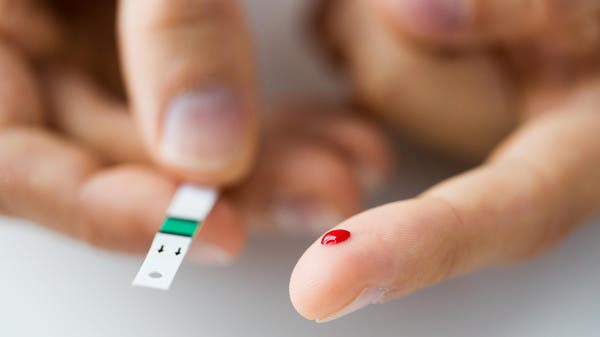Islam’s holy thirty day period of Ramadan is anticipated to start off on March 22 or 23 this yr and very last right until April 21, depending on when the crescent moon is cited.
Muslims are expected to speedy day by day for 29 or 30 days from dawn till sunset. Persons with well being troubles that require treatment expecting or menstruating ladies, or those people who are breastfeeding are exempt from fasting. Even so, for diabetics, in particular for all those who depend on insulin or diet plan alterations to take care of their situation, can rapid safely and securely if their health practitioner allows.
Ashwin Pankajakshan endocrinologist at NMC Royal Healthcare facility Dubai and health care provider Anil Kumar Pura Narayanaswamy, endocrinologist and diabetologist at Primary Medical Heart in Dubai’s Motor Metropolis shared their major ten suggestions for finding as a result of the holy thirty day period as a diabetic.
1: Examine with your physician
“It’s incredibly crucial to go over with your physician about your system to quick,” Pankajakshan reported.
Kumar consults his patients a few months prior to the start of Ramadan to ascertain whether or not it is safe and sound for them to quick. The health care provider says for those who come to a decision to rapidly, treatment timing – these kinds of as when to consider an insulin injection – may possibly have to have to be altered.
For case in point, insulin injections could possibly be modified to just in advance of a single breaks his or her fast, so their blood sugar does not fall, Pankajakshan stated.
Two: Keep hydrated
Pankajakshan advises diabetics to drink a lot of fluids – at minimum eight glasses of water – for the duration of Iftar (the breaking of rapidly) and Suhur (the meal ahead of dawn).
3: Verify blood sugars regularly whilst fasting
4: Don’t skip Suhur
Diabetics that skip the predawn food could produce sugar levels that are as well very low – which can be dangerous. Diabetics should also try out to have the suhur food as late as possible, the doctors suggested.
5: Check out out for signs or symptoms of hypoglycemia
The medical practitioners encouraged looking at for indicators of hypoglycemia – blood sugar stages that are also small. Symptoms contain shaking, sweating, tremors, blurring of vison or dizziness. If you have any of these indications, you need to examine your blood sugar promptly.
6: Steer clear of overeating throughout iftar
Averting overeating in the course of iftar prevents blood sugar stages from fluctuating. Pankajakshan also reported that diabetics ought to stay absent from high carb and sugary foods as properly as curbing their use of gentle beverages and sweets.
7: Excellent foods to eat
Foodstuff medical professionals propose ingesting consist of grains, meat, rooster and yoghurt. Consuming starchy greens these types of as potato, carrot and beetroot is also inspired.
8: Meals to stay clear of
Diabetics must attempt and decrease their consumption of fatty and salty meals as perfectly as limiting caffeine through ingesting several hours and as nicely as fried food, Pankajakshan encouraged.
Nine: Exercise throughout Ramadan
Doctors endorse retaining mild to average training throughout Ramadan between iftar and suhur instances.
Ten: Know when to cease fasting
If blood sugar concentrations are significantly less than 4 mmol/L( 72 mg/Dl ) or more than 16 mmol/L(290 mg/Dl), diabetics need to not rapidly.“The important point is they need to have to watch blood sugar [if fasting],” Kumar explained, incorporating that if it drops under or goes previously mentioned a particular amount it turns into risky to rapidly and they will need to halt.
Read a lot more:
Health professionals warn from Saxenda, Ozempic ‘quick fix’ diabetic issues injections for pounds reduction
Is Metformin safe and sound to use for excess weight loss in non-diabetics? UAE medical doctors weigh in
Physician warns of ‘Ozempic face’ facet outcome of diabetes drug employed for body weight reduction





More Stories
Tips for Losing Weight as a Diabetic: A Balanced Approach
Managing Gestational Diabetes: What To Know
Can diabetes be reversed? What to know about managing type 2 diabetes.